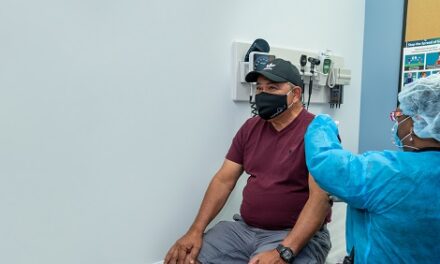.jpg) Assessing Accreditation & Credentialing Exam Results
Assessing Accreditation & Credentialing Exam Results According to the Department of Education (DOE, 2015), “Accreditation is the recognition that an institution maintains standards requisite for its graduates to gain admission to other reputable institutions of higher learning or to achieve credentials for professional practice. The goal of accreditation is to ensure that education provided by institutions of higher education meets acceptable levels of quality.” The Southern Association of Colleges and Schools, Commission on Colleges (SACSCOC), for example, is the “regional body for the accreditation of degree-granting higher education institutions in the Southern states” (SACSCOC, 2015). SACSCOC is a reassurance that its member institutions offer high quality educational programing and share the same values as evidenced in their respective mission and value statements. Locally, Miami Dade College, University of Miami, Florida International University and Barry University are examples of those with institutional accreditation. For a full listing, visit http://www.sacscoc.org/searchResults.asp.
In today’s healthcare environment and competitive educational arena, accreditation has never been more important for healthcare organizations and students. While many organizations rely on the United States DOE as a valuable source of information, it should not be the only source to verify a college’s or university’s accrediting body or be construed as evidence of a program’s quality. The DOE does not guarantee that the information supplied is accurate or complete. To acquire this information, you must call the associated accrediting agency or school.
Additional considerations to determine the quality of programs or schools would include availability of financial aid, transferability of credits to other postsecondary colleges and universities, retention rates, graduation rates and, extremely important, passing rates on national or state credentialing examinations.
The Medical Campus of Miami Dade College (MDCMed), for example, is no stranger to SACSCOC and other specialized accrediting agencies. MDCMed has 25 programs of study in the medical field inclusive of certificate, Associate of Science and Baccalaureate programs. MDCMed is accredited by 12 different accreditation agencies, representing 17 health-related programs. Additionally, all 25 programs must comply and adhere to standards set by SACSCOC. For a listing of all programs, please visit http://www.mdc.edu/medical.
In an effort to be more transparent to students and the public, passing rates on state and national exams are now being published more than ever and are often required by accrediting agencies. If not available on websites of the college or university or through the testing agency, schools should be more than willing to share this information by calling them directly. For example, the Health Information Technology program at MDCMed proudly displays a 100% certification examination pass rate by students in 2014-2015 on their website. Other examples of this transparency at MDCMed include a Dental Hygiene Program that has a 100% pass rate on credentialing examinations for 2014-15. The Physical Therapist Assistant program has a 91% passing rate on credentialing examination and experienced a 98% graduation rate in the year 2014-15. The Benjamin Leon School of Nursing Program at MDCMed also has outstanding numbers. For the year 2014-15 students achieved an 84% NCLEX passing rate for the Associate of Science in Nursing. Other notable rates achieved by students include a 96% passing rate on the Pharmacy Technician Certification, 98% passing rate for Paramedics, 96% for Respiratory Care students, a 100% passing rate by Nuclear Medicine students, and a 100% passing rate for Opticianry (vision care) students.
Healthcare organizations and students can gain more confidence and reassurance by asking questions and practicing due diligence. If a school does not want to share this information or is hesitant about discussing retention rates, graduation rates or accreditation status, caveat emptor.


























